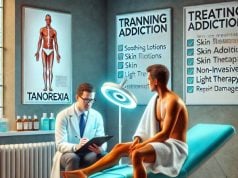
Sex addiction—often called compulsive sexual behavior disorder—goes far beyond a healthy appetite. It is a relentless pattern of sexual thoughts and actions that hijack time, money, relationships, and self-worth. Sufferers describe feeling pulled by an inner magnet: they promise to stop, yet loop back to porn binges, hookups, or risky encounters within hours. Shame grows; intimacy erodes. This in-depth guide unpacks how widespread the problem really is, what fuels it, the red flags to watch for, and, most importantly, the evidence-based paths that can lead to stable, fulfilling recovery.
Table of Contents
- Prevalence Numbers and Cultural Context
- Origins: Biological, Psychological, and Social Drivers
- Key Warning Signs and Diagnostic Pathways
- Consequences Across Physical Health, Emotions, and Relationships
- Treatment Modalities and Long-Term Growth
- FAQ
Prevalence Numbers and Cultural Context
Compulsive sexual behavior is more common—and more diverse—than most people realize. Community studies estimate that 3–6 percent of adults experience persistent, distressing sexual impulses or actions they struggle to control. Prevalence rises to nearly 20 percent in clinical addiction settings, suggesting strong overlap with substance and gambling disorders. Although men historically dominate treatment rosters, recent research shows women make up roughly 30 percent of new cases—an under-reported group partly hidden by differing social norms and stigma.
The digital age amplifies availability, anonymity, and affordability—the “Triple-A engine.”
- Round-the-clock access. High-speed internet and smartphones provide limitless sexual material and partner-seeking apps, erasing former logistical barriers.
- Pseudo-privacy. With incognito tabs and encrypted messaging, people can escalate behaviors for years before signs surface.
- Low (or no) cost. Free streaming sites and dating apps remove financial friction, letting binges spiral quickly.
Cultural paradox: Our society sells sex relentlessly—advertising, music videos, influencer content—yet shames those who “want it too much.” This double bind fuels secrecy. Many clients report thinking, “Everyone else seems obsessed with sex, so why am I the one labeled addicted?” The difference is not desire itself but loss of control and mounting negative fallout.
Under-diagnosis persists for three core reasons:
- Lack of consensus. Only in 2019 did the World Health Organization include “Compulsive Sexual Behavior Disorder” in ICD-11, and the DSM still has no full entry.
- Moral overlay. Clinicians sometimes conflate religious guilt or cultural taboos with pathology, leading to inconsistent assessments.
- Fear of exposure. Many sufferers avoid help until consequences explode—job loss, relationship collapse, legal charges—because the idea of discussing sexual habits feels mortifying.
Bottom line: Millions wrestle with compulsive sexual behavior, yet misinformation and shame keep doors to care partially closed. Recognizing prevalence is the first step to normalizing discussion and expanding accessible, non-judgmental support.
Origins: Biological, Psychological, and Social Drivers
Sex addiction rarely stems from a single spark; it grows where neurochemistry, temperament, and environment intersect. Grasping these layers replaces blame with understanding—and guides individualized treatment.
Neurological underpinnings
- Dopamine reward storms. Novel sexual stimuli—new partners, escalating pornography genres—flood the nucleus accumbens with dopamine. Over time, receptors down-regulate, requiring more intense or taboo material to achieve the same rush.
- Opioid release and withdrawal. Orgasm triggers endogenous opioids; when the high fades, users experience a mini-crash that mimics withdrawal, prompting repeat behavior.
- Prefrontal burnout. Chronic overstimulation weakens impulse-control circuits, making “just one peek” or “only five minutes” nearly impossible.
Psychological contributors
- Trauma history. Up to 80 percent of clients in sex-addiction rehab report childhood abuse or neglect. Sexual behavior becomes a self-soothing or dissociative tool.
- Attachment wounds. Insecure attachments—fearful, avoidant, or anxious—can manifest as compulsive pursuit of validation through sexual conquests or fantasy.
- Mood regulation deficits. For many, sexual stimulation functions like a quick-acting antidepressant or anxiety reducer.
- Co-occurring disorders. ADHD, bipolar spectrum, obsessive-compulsive traits, and substance misuse all elevate vulnerability by impairing impulse control or heightening sensation-seeking.
Environmental accelerants
- Early sexualization. Exposure to porn at an average age of 11–12 short-circuits natural developmental pacing.
- High-stress professions. Executives, first responders, or touring entertainers often use sex as rapid tension release during intense schedules.
- Peer normalization. Locker-room talk, group chats, or pop-culture memes equate masculinity—or social currency in any gender—with high partner counts, masking compulsivity until chaos erupts.
- Accessibility in urban hubs. Cities with dense nightlife, massage parlors, or escort services offer constant triggers.
Key insight: Sex addiction is not simply “too much pleasure” but a complex coping system that hijacks the brain’s reward circuitry when emotional needs remain unmet.
Key Warning Signs and Diagnostic Pathways
Because sexual desire varies widely across individuals and cultures, drawing the line between high libido and addiction can be tricky. The yardstick is not frequency but impairment and loss of control. Below are hallmark indicators clinicians use.
Behavioral signals
- Hours lost to porn or chat sessions—often late at night—followed by fatigue or missed obligations.
- Escalation from “vanilla” content to more extreme or illegal material to maintain arousal.
- Multiple affairs or anonymous hookups despite risk of relationship or job fallout.
- Using sex while intoxicated or in risky settings (cars, public places) to heighten thrill.
- Failed attempts to quit or cut back—often deleting apps, only to reinstall within days.
Common self-assessment questions
- Do sexual thoughts intrude when you’re trying to focus on work or family?
- Have you promised yourself “never again,” yet resumed within weeks?
- Do you hide or lie about sexual behaviors to avoid embarrassment?
- Have you faced financial, legal, or health consequences (STIs, blackmail) yet persisted?
Answering “yes” to three or more suggests evaluation by a mental-health professional versed in behavioral addictions.
Professional diagnostic steps
- Structured interview. Tools like the Sexual Addiction Screening Test-Revised (SAST-R) and the Hypersexual Behavior Inventory (HBI) capture frequency, control, and consequences.
- Rule-out medical causes. Thyroid disorders, dopamine-agonist medications for Parkinson’s, or frontal-lobe injuries can trigger hypersexuality without addiction dynamics.
- Assess co-morbidities. Standardized scales screen for depression, trauma, substance use, ADHD, and OCD to inform integrated care.
- Functional impairment check. Clinician documents lost workdays, relationship strain, and legal issues to gauge severity.
Insurance note: In the absence of a DSM code, many providers bill under “Other Specified Obsessive-Compulsive and Related Disorder” or “Impulse-Control Disorder, Unspecified.” Advocates continue pushing for dedicated recognition to streamline coverage.
Consequences Across Physical Health, Emotions, and Relationships
The immediate rush of orgasm can eclipse the mounting cost until crisis hits. Understanding the full spectrum of harm builds motivation for change.
Physical health risks
- Sexually transmitted infections (STIs). Repeated unprotected encounters elevate risk for HIV, HPV-related cancers, hepatitis B/C, syphilis, and antibiotic-resistant gonorrhea.
- Physical exhaustion. Extended porn or masturbation marathons disrupt sleep, weaken immunity, and exacerbate chronic pain disorders.
- Medication interactions. Continuous use of erectile-dysfunction drugs or stimulants to sustain performance strains cardiovascular systems.
Mental-health fallout
- Paradoxical anhedonia. Neuroadaptation dulls sensitivity to everyday joys—food, music, non-sexual intimacy—driving further escalation.
- Shame and secrecy loops. Each covert binge deepens self-loathing, fuelling more acting out as an escape.
- Trauma reenactment. Some survivors unconsciously replicate abusive scenarios, perpetuating PTSD symptoms.
- Suicidality. Surveys show elevated suicidal ideation among individuals whose addiction collides with faith or family values.
Relational and financial repercussions
- Attachment erosion. Partners experience betrayal trauma, leading to mistrust, anxiety, or their own compulsions.
- Job jeopardy. Workplace affairs, porn-on-company devices, or missed deadlines risk suspension or dismissal.
- Legal consequences. Soliciting sex workers, public indecency, or non-consensual image sharing can result in criminal charges.
- Debt spiral. Premium porn subscriptions, webcam tips, escort fees, or hush money accumulate quickly.
Core message: Sex addiction can silently siphon vitality from every life domain—health, happiness, and human connection—making timely intervention essential.
Treatment Modalities and Long-Term Growth
The good news: thousands reclaim balanced sexuality each year through blended therapeutic approaches. Recovery is not about suppressing desire; it’s about restoring choice, integrity, and intimacy.
Behavioral and psychotherapeutic pillars
- Cognitive-Behavioral Therapy for Sexual Addictions (CBT-SA). Targets distorted beliefs (“I can’t sleep without porn”) and installs coping alternatives for triggers.
- Dialectical Behavior Therapy (DBT). Especially useful for those with borderline traits or explosive urges; teaches distress tolerance and emotion regulation.
- Acceptance and Commitment Therapy (ACT). Helps clients unhook from urges by committing to values-driven actions rather than short-term relief.
- Trauma-focused modalities. EMDR, Internal Family Systems (IFS), and Somatic Experiencing process abuse memories fueling compulsivity.
- Sex therapy. Re-educates about healthy arousal, boundaries, and intimacy, often involving partners in conjoint sessions.
Group and peer support
- 12-Step fellowships. Sex Addicts Anonymous (SAA), Sexaholics Anonymous (SA), and Sex and Love Addicts Anonymous (SLAA) provide sponsorship, step work, and accountability calls.
- Cognitive recovery groups. SMART Recovery and LifeSTAR combine education, mindfulness, and relapse-prevention planning.
- Partner programs. Spouses join separate support meetings to process betrayal trauma and set healing boundaries.
Medication adjutants
- SSRIs. Reduce obsessive sexual thoughts and treat comorbid depression or anxiety.
- Naltrexone. Blocks opioid receptors, dampening the reinforcing high post-orgasm; studies show reduced porn hours and hookups.
- Mood stabilizers. Lamotrigine or lithium can taper impulsivity in bipolar or severe mood dysregulation cases.
- Anti-androgens. In extreme, high-risk scenarios (court-mandated or personal choice), agents like medroxyprogesterone decrease libido; used cautiously with medical oversight.
Digital self-management tools
- Filtering software. Apps like Covenant Eyes, Net Nanny, or Canopy block explicit content across devices and send accountability reports.
- Urge-tracking apps. RTribe or Sober Grid let users log triggers, chat with peers, and track streaks.
- Mindfulness platforms. Headspace and Insight Timer offer guided practices proven to lower craving intensity.
Relapse-prevention roadmap
- Personal trigger audit. Identify high-risk times (late nights, travel), emotional states (boredom, anger), and locations (hotel rooms, home alone).
- Three-tier plan. Tier 1: immediate grounding (cold shower, 4-7-8 breathing); Tier 2: connection (call sponsor, partner check-in); Tier 3: environment shift (leave room, walk dog, attend meeting).
- SOBER check. Adapted from mindfulness: Stop, Observe body/mind, Breathe, Expand awareness, Respond wisely.
- Accountability calendar. Mark sober days with green, slips with red, noting trigger and response to guide future strategy.
- Celebrate progress. Reward milestones—30, 60, 90 days—using healthy pleasures: massage, hike, creative class.
Building a fulfilling, sex-positive life
- Rediscover intimacy. Focus on non-sexual touch, eye contact, and emotional sharing to rebuild trust with partners.
- Holistic wellness. Balanced sleep, nutrition, and exercise stabilize mood and hormones.
- Purpose reboot. Volunteering, career goals, and hobbies fill the void compulsive behaviors once occupied.
- Ongoing education. Read books like “Out of the Shadows” or attend webinars to deepen insight and stay motivated.
Success story snapshot: “Carlos” began using porn at 10, escalated to daily massage-parlor visits by 28, and faced divorce after a credit-card bill revealed $12,000 in hidden fees. Enrolling in an eight-week CBT-SA group, he paired filtering software with twice-weekly sponsorship calls. Three years later, he reports occasional urges but zero acting out, greater marital openness, and a newfound passion for marathon training. His experience underscores that sex addiction recovery is not about repression—it’s about intentional, values-aligned living.
Key takeaway: Lasting change blends therapy, community, accountability tools, and lifestyle transformation, proving that healthy sexuality and rich relationships are absolutely attainable.
FAQ
How do I know if my high libido is an addiction?
If sexual thoughts or behaviors feel uncontrollable, cause distress, and damage work, health, or relationships, you may be dealing with addiction, not just strong desire.
Is sex addiction officially recognized?
Yes, the World Health Organization lists “Compulsive Sexual Behavior Disorder” in ICD-11. The DSM has not yet included a full entry, but clinical criteria exist.
Can women be sex addicts?
Absolutely. While men seek treatment more often, women experience compulsive sexual behaviors too—often underreported due to greater stigma.
Will therapy reduce my sex drive to zero?
Good treatment aims to balance, not eliminate, sexuality—restoring healthy desire and genuine intimacy rather than pushing celibacy.
Do I need inpatient rehab?
Only severe cases with legal or safety risks require residential care. Most people succeed with outpatient therapy, groups, and digital supports.
Are medications always necessary?
No. They help some individuals, especially when mood or impulse disorders co-occur, but therapy and support groups remain foundational.
How long does recovery take?
Many notice major improvements within six months, but sustaining change is a lifelong practice—similar to managing diabetes or sobriety.
Can partners truly heal after betrayal?
Yes. With transparency, counseling, and time, many couples rebuild trust and even strengthen emotional closeness.
What if I relapse?
Slip-ups are data, not defeat. Analyze the trigger, adjust the plan, and reach out to your support network immediately.
Where can I find confidential help right now?
Start with a licensed therapist experienced in sexual addiction, or join an online 12-Step meeting—many offer anonymity and free entry.
Disclaimer: The information in this article is for educational purposes only and does not replace personalized medical, psychological, or legal advice. If you suspect that you or someone you love struggles with sex addiction, seek professional support.
If this guide shed light on a tough topic, please share it on Facebook, X (formerly Twitter), or any platform you enjoy. Your shares help us keep producing trustworthy, compassionate resources. Follow us for more evidence-based insights—together, we can break stigma and spark healing conversations.










